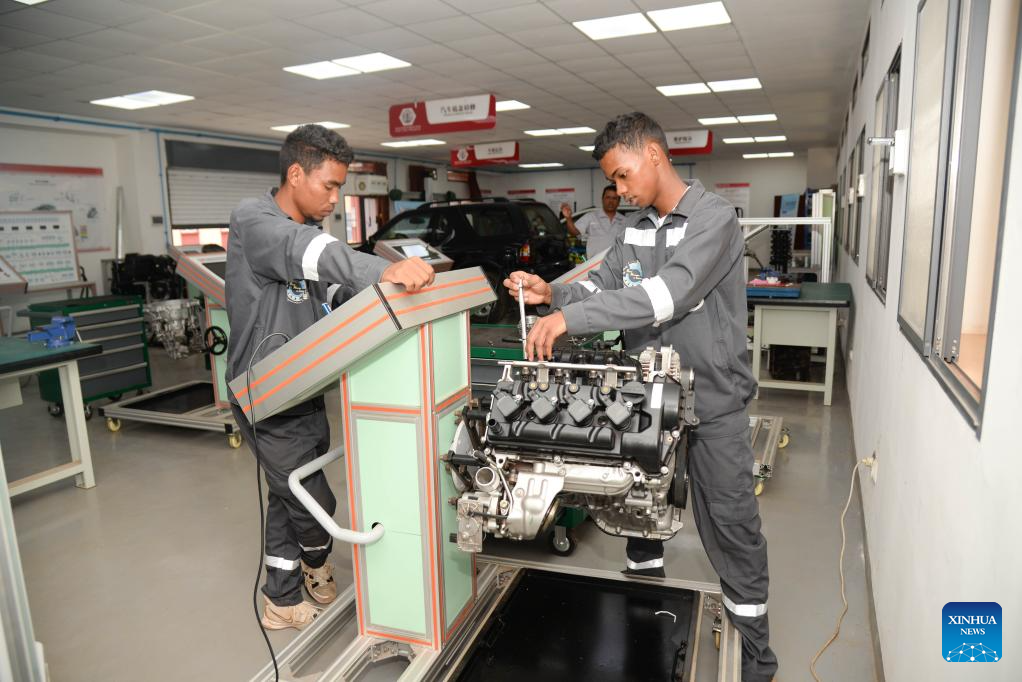In recent years, Madagascar's Luban Workshop has emerged as a key player in vocational training, equipping young individuals with the technical expertise needed for industrial advancement. Established in 2022 through a partnership between Chinese institutions and the University of Antananarivo, the workshop has already trained over 100 students in automotive maintenance, industrial electricity, information technology, and mechanical engineering.
Practical Training for Real-World Application
Unlike traditional academic programs, Madagascar's Luban Workshop focuses on hands-on learning, with 75% of the curriculum dedicated to practical experience and 25% to theory. This approach ensures that graduates are industry-ready upon completion.
One such graduate, Nancy Ratianarinoro, recently completed her training in automotive maintenance and is refining her skills at China Railway Construction Corporation Limited’s garage in Antananarivo. "The equipment here is similar to what we used during training, which makes the transition into the workforce much easier," she said.
Another graduate, Francia Rakotondraibe, is now a teaching assistant specializing in hydraulic and pneumatic transmission at the Polytechnic School of the University of Antananarivo. "Our program gives us a strong foundation in automation, which is in high demand," she explained.
Growing Industry Demand for Luban Workshop Graduates
According to Edmond Randriamora, head of the Electrical Engineering Department, Madagascar's Luban Workshop graduates are highly sought after. Even second- and third-year students are receiving job offers from leading companies. The program’s emphasis on real-world skills has made its students valuable assets in the job market.
With support from the Sino-African cooperation framework for vocational education, the workshop has established an advanced automotive maintenance training base and several specialized classrooms equipped with cutting-edge teaching tools.
Shaping Madagascar’s Industrial Future
One of the workshop's standout features is its use of computer numerical control (CNC) machines. These machines allow for high-precision manufacturing of mechanical parts and represent a significant technological leap for Madagascar. Faniry Emile Rakotondrainibe, head of the mechanical engineering program, emphasized that mastering CNC technology is crucial for the country's industrial modernization.
The government’s "One District One Factory" initiative aligns perfectly with the workshop’s mission, reinforcing Madagascar’s push for economic transformation. Minister of Higher Education and Scientific Research Loulla Chaminah has highlighted the importance of the workshop in shaping a skilled workforce that will drive industrialization.
Conclusion
Madagascar's Luban Workshop is playing a vital role in bridging the skills gap, preparing youth for employment, and contributing to national economic growth. By providing hands-on training in critical fields, the initiative is paving the way for a more industrialized Madagascar.
What are your thoughts on vocational training in Madagascar? Share your opinions below!
For more updates on the automotive industry in Africa, visit Auto24.





